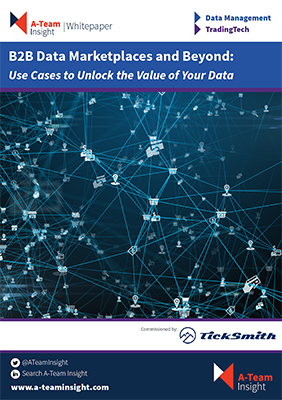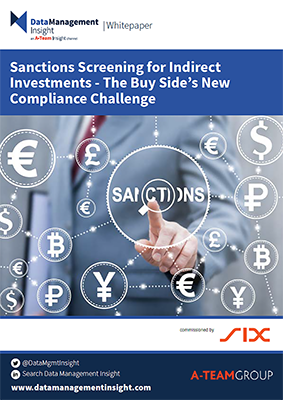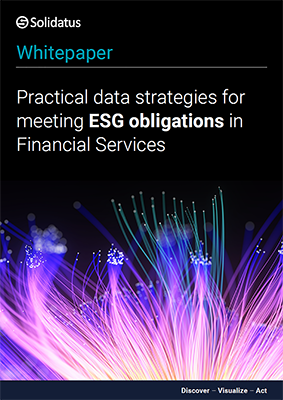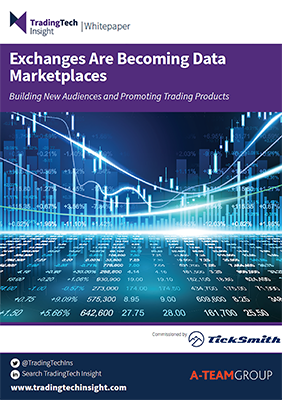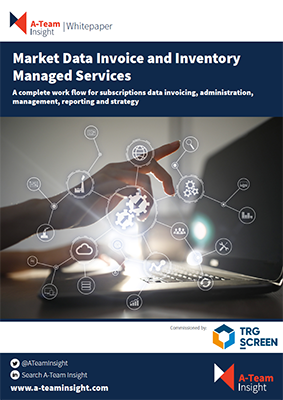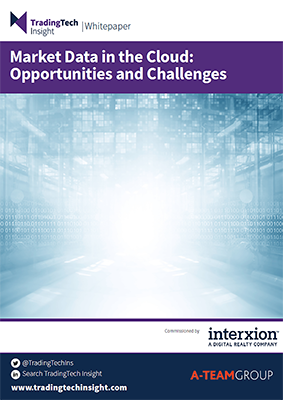A-Team Insight White Paper
B2B Data Marketplaces and Beyond
Financial institutions and corporations often generate huge quantities of data as a by product of their core activities. This data – details of historical transactions, customer interactions and metadata for referring to instruments, counterparties or entities – can provide valuable insights for industry participants, and form the basis of a meaningful data sales business. But...
Sanctions Screening for Indirect Investments – The Buy Side’s New Compliance Challenge
The global political climate over the past few years has sparked a jump in the use of sanctions to attempt to influence the behaviour of players in the geopolitical landscape. While sell-side firms are familiar with sanctions and have long been required to monitor the securities they trade, own or recommend to clients to ensure...
Next-Generation Network and Vendor Management: mitigating operational risk in relationship networks
The complex network of relationships that financial institutions have built with multiple partners has created a huge operational burden, resulting in significant operational risk as well as financial and compliance risk. Dating back decades, many of these relationships are now managed as a separate business function, costing organisations millions of dollars. Add in regulatory obligations,...
Practical Data Strategies for meeting ESG Obligations in Financial Services
The ESG investing landscape is poised to become more defined, as competing definitions, standards and regulatory initiatives start to converge. The impact of ESG will be felt far and wide across the financial services community, which will face practical challenges in developing and implementing an ESG strategy that is both effective and avoids box-ticking –...
Data integrity: Your key to confidence in a complex regulatory environment
Despite the recent challenges of the Covid pandemic, regulators have made it clear that they will not accept reporting errors, particularly those that are related to data. Enforcement is more stringent, scrutiny is more in-depth, and the pressure is on to ensure – and demonstrate – that the data underpinning your reporting and activities is...
Exchanges Are Becoming Data Marketplaces
Exchanges and other trading venues have long derived revenue from sales of their data; in some cases they operate substantial businesses based around sales of their real-time quotes and other market data services. But few are well set up to deal with growing demand for other datasets they may generate from their core activities, such...
Mitigating Compliance Risk by Matching Application Usage to Data Licensing Obligations
As financial institutions consume more market data from more sources than ever before, the task of administering external data services is growing both in complexity and scale. At the same time, data services are increasingly consumed by applications rather than humans, and these applications often consume more data than humans and produce derived data. As...
Market Data Invoice and Inventory Managed Services
Financial institutions are subscribing to an ever-growing list of information services in their efforts to keep abreast of increasingly complex global markets. This is adding to the burden of managing relationships with existing data vendors, whose licensing agreements and invoices are also growing in complexity. Firms’ appetite for cloud-delivered services and the trend toward working...
Embracing Automation and Collaboration Tools to Inject Reference Data into the Trade Lifecycle
Digital transformation in the financial services sector has raised many questions around data, including the cost and volume of reference data required by each financial institution. Firms need flexible access to the reference data required to ensure workflows can proceed without interruption. ‘One-size-fits-all’ bulk data licensing models are increasingly less fit for purpose. Emerging solutions...
Market Data in the Cloud: Opportunities and Challenges
Financial institutions are buying into the promise that the scalability and elasticity of cloud solutions will prove to be more cost-effective than on-premise implementations. As firms migrate what they can of their technology infrastructures to the cloud, they are starting to include market data delivery and ingestion systems – long considered too critical to be...

